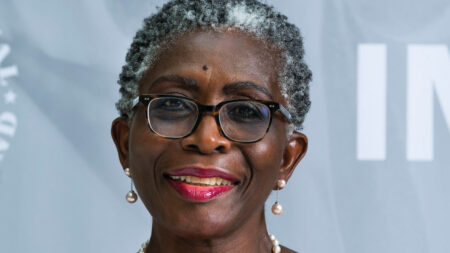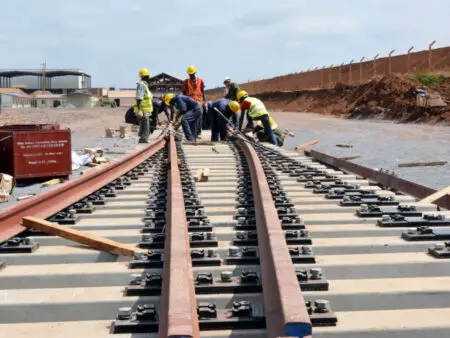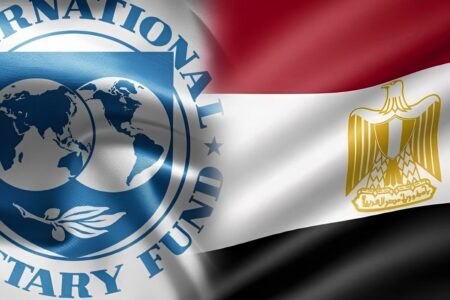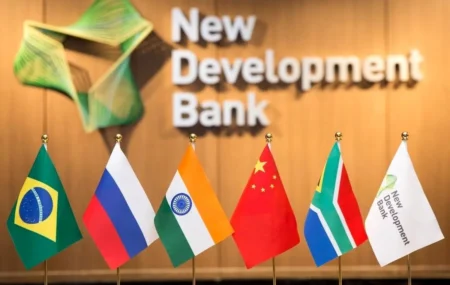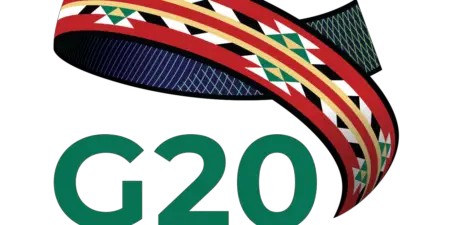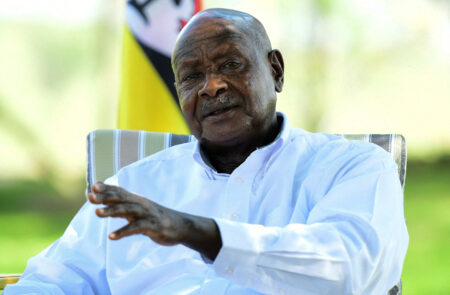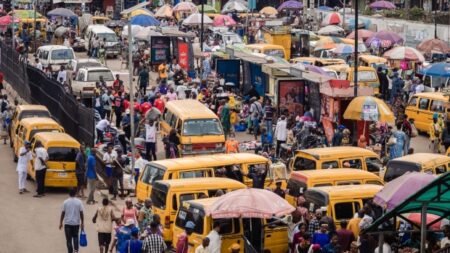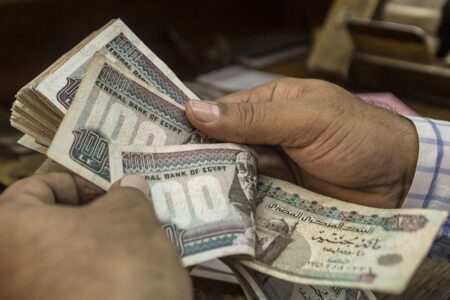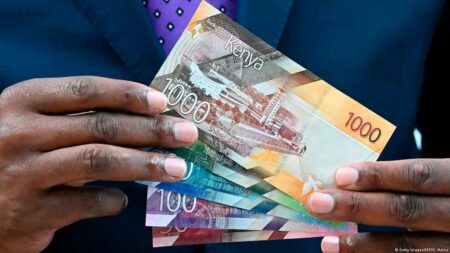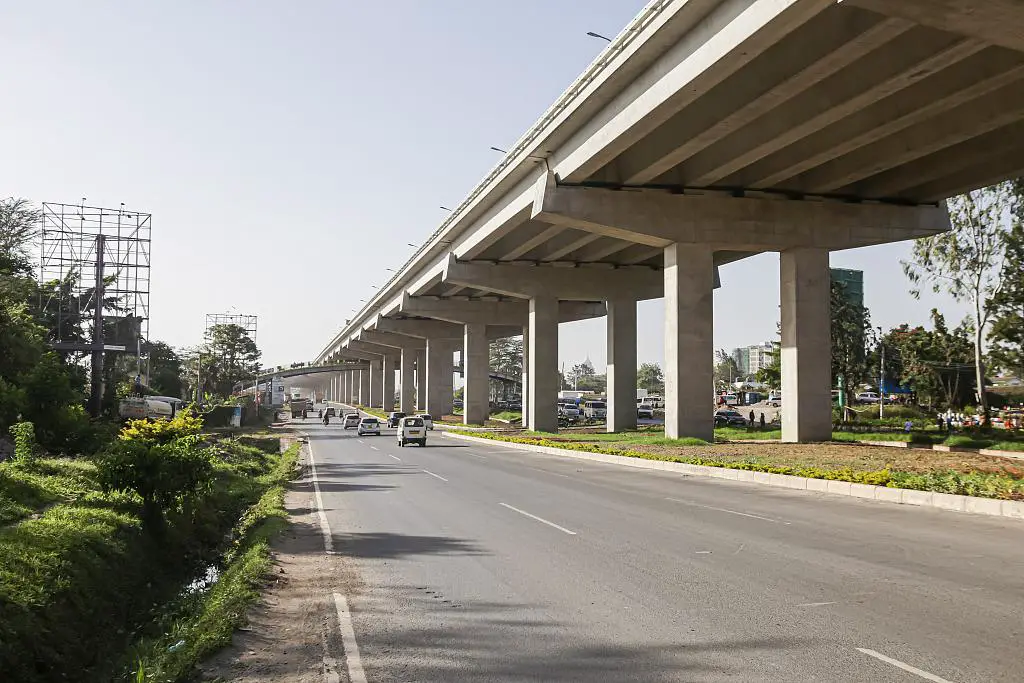- Africa’s new dawn: the rising role of digital and AI in agriculture
- Can Dangote Refinery Transform Africa Energy Ambition
- Gallup Survey: 80 per cent of Kenyan Workers Are Disengaged and Seek New Opportunities
- Madagascar Man Freed from 5KG Tumor After 15-Year Struggle
- How women in Africa are perceived and treated
- Sugar consumption in Kenya to Increase to 1.23 Million Tonnes
- Can Somalia and Turkey Oil deal Bring Change in Somaliland
- Remittances to Kenya dropped to $371.6 million in June, marking a six month low
Browsing: IMF
- Antoinette Monsio Sayeh is set to retire as Deputy Managing Director of the International Monetary Fund (IMF) on September 12, 2024.
- The IMF says her experience, deep integrity, and wise judgment have been invaluable to the global lender.
- Antoinette Sayeh oversaw several vital initiatives of operations, policies, and corporate priorities, drawing on her deep knowledge of the institution.
Liberian management icon and trailblazer Antoinette Monsio Sayeh is set to retire from the International Monetary Fund (IMF) on September 12, 2024.
In an update by the IMF Managing Director Kristalina Georgieva, Antoinette Sayeh will conclude her tour of duty in the Washington-based institution this September where she has been serving as the Deputy Managing Director since 2020.
At the helm, she served with deputy managing directors Kenji Okamura (Japan), Bo Li (China) and Gita Gopinath (US/India) who is the first managing director.
“Antoinette has been a pillar of the Fund’s leadership …
- New investment in Tanzania’s railways sector is expected to directly benefit nearly 900,000 people and indirectly impact an estimated 3.5 million.
- Tanzania operates two railway systems, totaling 3,682 km in length.
Tanzania railway sector is poised for immense growth as the World Bank poured significant funding by approving $200 million in financing from the International Development Association (IDA) which is a part of the bank.
According to available information from the World Bank statement made on Friday, the bank said the financing for the second phase of the Tanzania Intermodal and Rail Development Project (TIRP-2) will improve safety, climate resilience, and operational efficiency along this railway segment.
Read also: AfDB approves $696.4M financing for Tanzania-Burundi-DRC railway project
Tanzania railway plan anchored on Dar- Morogoro SGR
The funding comes a few weeks after Tanzania Railways Corporation (TRC) began its inaugural trial journey of the electric Standard Gauge Railway (SGR) train …
- The IMF has approved an expansion of the original economic rescue program for Egypt by $5 billion.
- Spillovers from the recent conflict in Gaza and Israel aggravated the shaky economic situation in Egypt.
- Egypt has recently taken difficult but necessary reforms to correct the country’s microeconomic imbalance.
IMF’s Economic Rescue Program for Egypt
The Executive Board of the International Monetary Fund (IMF) has completed the first and second reviews of Egypt’s Extended Fund Facility (EFF)arrangement, approving an expansion of the original economic rescue program by $5 billion.
detroit lions jersey
Florida state seminars jerseys
Ohio State Team Jersey
49ers jersey
49ers jersey
Ohio State Team Jersey
asu football jersey
asu football jersey
Florida state seminars jerseys
fsu football jersey
Florida state seminars jerseys
Iowa State Football Uniforms
Iowa State Football Uniforms
detroit lions jersey
The IMF had initially approved a $3 billion loan in December 2022 but has …
asu football jersey
asu football jersey
Ohio State Team Jersey
custom football jerseys
49ers jersey
College Football Jerseys
johnny manziel jersey
Florida state seminars jerseys
asu football jersey
Florida State Seminars jerseys
fsu football jersey
ohio state jersey
ohio state jersey
College Football Jerseys
- The BRICS-owned New Development Bank (NDB) was established in 2015 by Brazil, Russia, India, China, and South Africa.
- The multilateral lender plans to disburse about $5 billion in loans this year.
- The bank has an initial verified capital of $100 billion and a subscribed capital of $50 billion.
Emerging economies could give the superpowers a run in the lending sector with the the BRICS alliance planning to disburse about $5 billion in loans this year. This was announced by the bloc’s New Development Bank (NDB) Vice President Zhou Qiangwu on Tuesday, March 26.
As China, one of Africa’s closest trade partners, experiences …
- As national debts grow, many African countries find themselves spending more on debt than on health.
- IMF says the debt ratio in Sub-Saharan Africa surged to 60% from 30% of the countries’ GDP between 2013 and December 2022.
- Kenya is for instance using nearly 60% of its annual revenues on paying debt obligations.
As the Africa debt crisis roils, over half of the countries have found themselves spending more money in servicing their loan obligations than even the amount they have budgeted for health services to their citizens.
This unfolding scenario is further burdening millions of their citizens who have little choice but to shoulder heavy tax burdens to settle mountains of debt.
Prof Danny Bradlow, a Senior Research Fellow at the Centre for the Advancement of Scholarship in Pretoria, South Africa, captures the dire situation, stating: “over the last three years (2019/22), more than 25 African governments allocated …
- The IMF has issued Uganda $120 million as part of its Extended Credit Facility (ECF) Arrangement to aid recovery.
- Total disbursement to Uganda under the ECF Arrangement now reaches $870 million.
- IMF urges Uganda to give its Central Bank independence
Kampala is set to receive $120 million as part of its Extended Credit Facility (ECF) Arrangement with the International Monetary Fund (IMF) to aid Uganda’s economic recovery amidst various challenges, including backlash due to a harsh anti-LGBTQ law.
The IMF executive board has approved immediate disbursement of the said amount after the conclusion of its fifth review of Uganda’s ECF Arrangement. “This brings the aggregate disbursement under the ECF Arrangement to about $870 million,” the IMF note says in part.
Uganda qualified for about $1 billion under the ECF Arrangement as of June 2021, which is now distributed in part every other year.
IMF loan to aid Uganda’s economic recovery
…- Nigeria’s cost of living crisis has been the worst in decades, exacerbated by worsening food insecurity and record inflation.
- The lack of enough resources has led to insecurity in Nigeria as people fight for scarce resources and food.
- In response to Nigeria’s cost of living crisis, Tinubu announced a state of emergency in July and intends to begin grain distribution in the coming weeks.
Tinubu’s Reforms worsen Nigeria’s cost of living crisis
Nigeria, Africa’s largest economy, is grappling with the worst cost of living crisis in decades and a worsening food security situation. A significant portion of the population is experiencing extreme food insecurity. After assuming power in May 2023, Bola Tinubu’s administration adopted bold but unpopular reforms that further strained the already-battered economy.
Nigeria imports food and fuel and was buffeted by rising commodity prices due to a glim global economic situation in the last two years. President Tinubu …
- Egypt’s economy has recently been on life support as the national debt continued to mount.
- The investments from Saudi Arabia and further funds anticipated from the World Bank and IMF will give Egypt enough cash to meet its debt obligations and maintain stability in its recently floated currency.
- The significant official and bilateral support announced and marked policy steps that Egypt has taken will, if maintained, support macroeconomic balancing.
Egypt’s economy on life support
Egypt’s economy has recently been on life support as the national debt continued to mount. The Egyptian currency has weakened against the US dollar, with rising inflation rates close to 30 per cent, occasioning a capital flight. Moreover, the overlapping global shocks and the domestic supply of bottlenecks have adversely impacted the country’s economic activity.
Egypt has also suffered from rising global interest rates and soaring commodity prices in international markets. These overlapping factors widen the …
- The Kenyan shilling has made a strong turnaround against the US dollar this week,
- Last Tuesday, Kenya successfully raised $1.5 billion from its Eurobonds buyback offer initiated on February 7, reducing the chance of defaulting payment on its $2-billion-dollar debt due in June.
- East Africa’s most robust economy plans to use the funds to repay its debut Eurobond issued in 2014.
The Kenyan shilling has made a strong turnaround against the Ubest human hair wigs for black females jordan air force 1 latex hood sac eastpak nike air jordan 1 elevate low smith and soul johnny manziel jersey jordan max aura 4 dallas cowboys slippers mens johnny manziel jersey bouncing putty egg adidas yeezy boost 350 turtle dove luvme human hair wigs jordan proto max 720 uberlube luxury lubricant S dollar this week, moving towards the most potent levels since March last year, mainly on investor confidence and increased …
- Kenya’s distressed debt levels are pushing the country in a tight spot following years of successive borrowing, the Institute of Public Finance (IPF) says in its latest Macro Fiscal Analytical Snapshot Report.
- This is compounded by the inability of the private sector to create woefully insufficient jobs for millions of young people entering the job market annually.
- The report notes that since 2014, persistent high fiscal deficits have resulted in a swift escalation of public debt, now standing at 70 per cent of the GDP.
Kenya risks missing its economic growth targets in the medium-term as the country grapples with high debt distress and a deteriorating macroeconomic operating environment.
According to the Institute of Public Finance (IPF) in its latest Macro Fiscal Analytical Snapshot Report, the country finds itself in a tight spot following years of successive borrowing.
This is coupled with the inability of the private sector to create …





